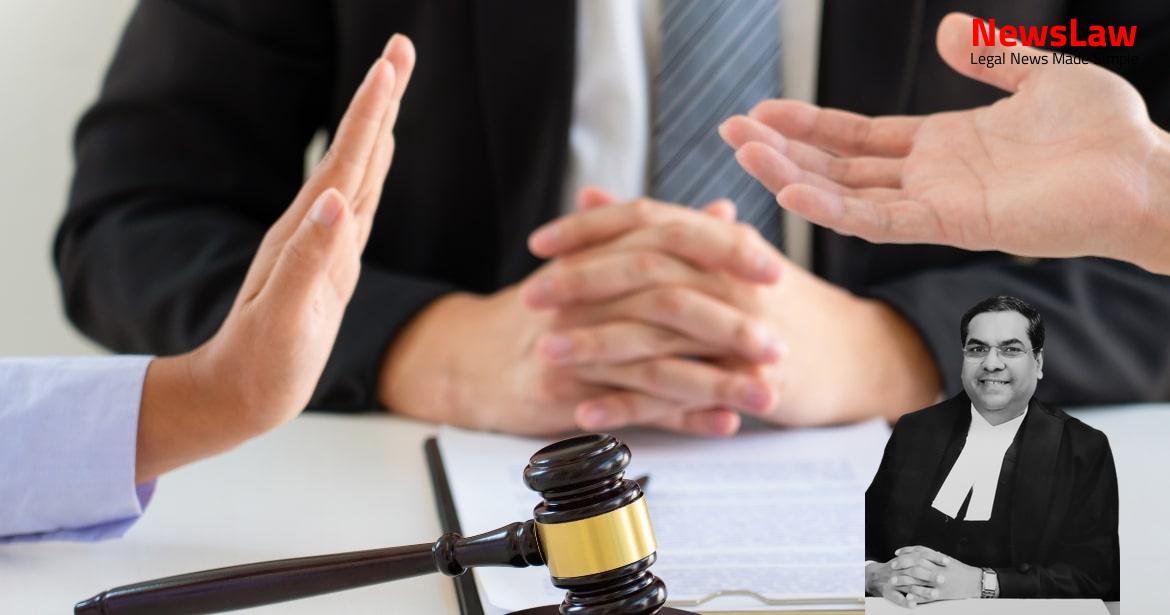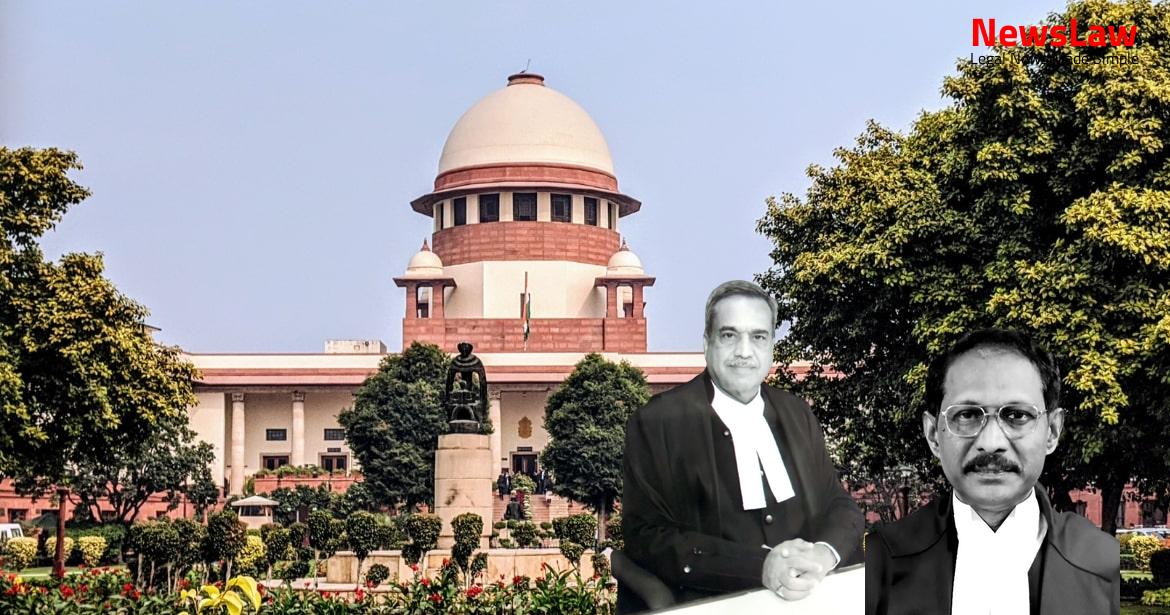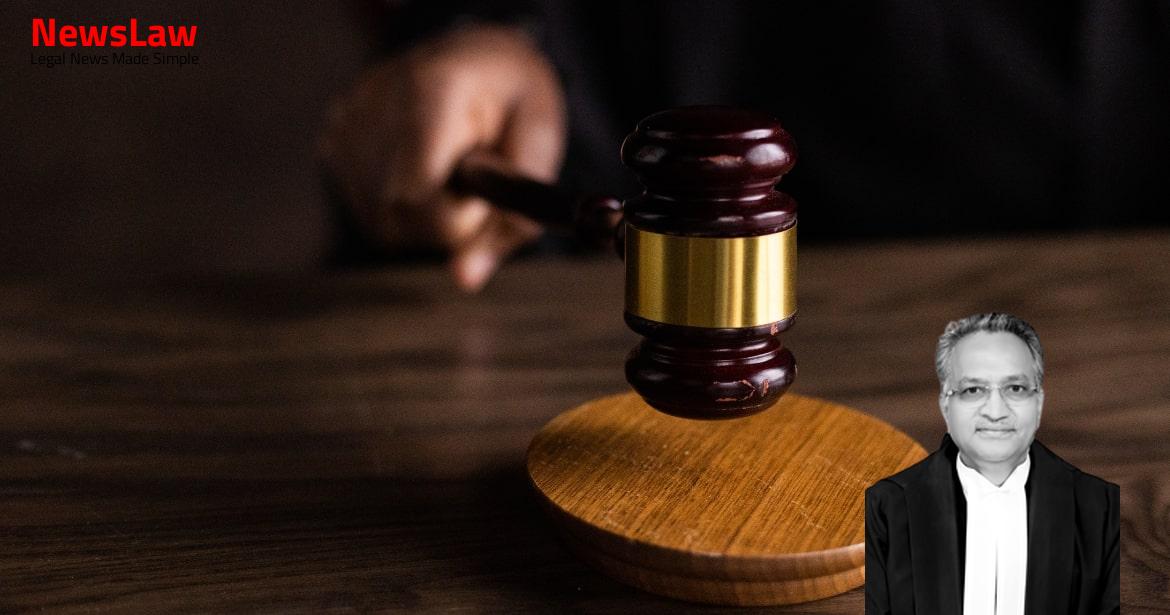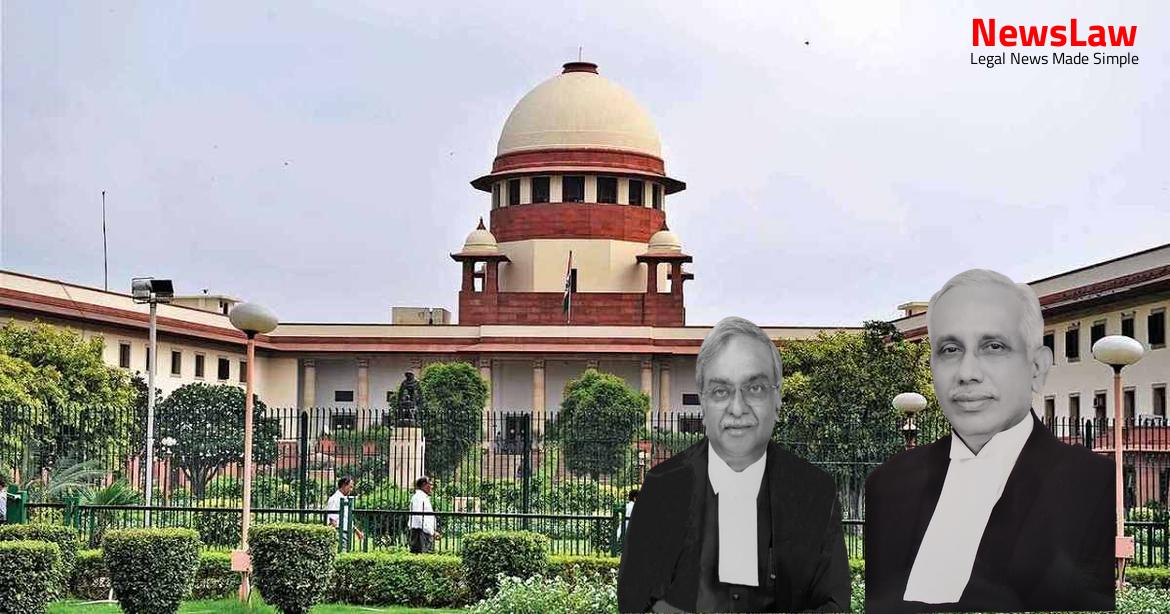Explore the detailed legal analysis conducted by the court in a recent property dispute case, focusing on aspects of limitation and fraud detection. The case sheds light on how the court applied the Limitation Act and evaluated claims of fraud to reach its decision. Follow along to understand the nuances of legal proceedings in property disputes.
Facts
- The plaintiff filed a Civil Suit seeking various declarations and injunctions regarding a property in New Delhi.
- Applications for amendment of the plaint were filed to incorporate a prayer for possession and amending the cause of action clause.
- The applications for amendment of the plaint were deemed unnecessary and were rightly rejected by the Single Judge.
- Defendant Nos. 1 and 2 contested the suit by filing their respective written statements.
- The question before the court was whether the suit as framed should be rejected under Order VII Rule 11(d) of the CPC based on the ground of limitation.
- Applications for amendment filed by the plaintiff dismissed as mala fide and not maintainable.
- Impugned order dated 25 April 2016 upheld rejection of the plaint on the ground of being filed beyond the period of limitation.
- Application for rejection of the plaint on the ground of limitation was filed.
- Order dated 7 February 2014 settled preliminary issue of limitation, stating the suit was barred by time.
- Order dated 6 April 2015 by Single Judge concluded that the suit was barred by time and the plaint was liable to be rejected.
Also Read: Analysis of Bail Conditions in Criminal Appeal No. INSC 48/2024
Issue
- The question revolves around whether the prayer for a declaration that the sale deed dated 23 August 1969 is null and void is barred by limitation and can be decided as a legal issue without the need to present evidence.
- The main issue is whether the claim of the sale deed being fictitious, sham, incompetent, bad, and illegal falls within the scope of being considered as a legal issue without the requirement of evidence.
- The focus is on determining if the question of the sale deed’s validity can be resolved solely based on legal considerations without the necessity of introducing factual evidence during the legal proceedings.
Also Read: Conviction Upheld for Murder and Concealment of Body
Arguments
- The late Kultaran Singh Anand’s brother, referred to as ARG_RESPONDENT, is accused of raking up false, inconsistent claims and issues.
- The intent behind these actions is to divide the family and involve them in internal litigation.
- This behavior is seen as disruptive and harmful to family cohesion.
- Allegations of creating false narratives and conflicts are made against ARG_RESPONDENT.
Also Read: 1991 Decree Invalid: No Determination of Rights in Property Dispute
Analysis
- The decision under clause (d) of Rule 11 to Order VII of the Code of Civil Procedure typically proceeds on ‘demurrer’.
- Order VII Rule 6 of the Code requires the plaintiff to show the grounds for claiming exemptions from the law of limitation in the plaint.
- The plaintiff must state the causes or reasons for claiming such exemptions and provide the basis on which a period should be excluded from counting.
- The relationship between the parties or their predecessors and the time passed without challenge plays a crucial role in determining exemption from limitation.
- Sections of the Limitation Act save rights of a party defrauded as long as the party is not at fault.
- Fraud or mistake must be stated with the date of discovery, and lack of diligence in discovering the fraud may negate protection under the law.
- Order VI Rule 4 and Order VII Rule 6 of the Code require specific facts with dates to be pleaded, not factual evidence.
- Terms of sale involving the properties in question need to be clearly defined and proven.
- Legal notices and responses play a significant role in establishing the sequence of events and intentions.
- The plaintiff’s knowledge and actions over time are crucial in determining the validity of claims and exemptions from limitation.
- Provisions of the Code can be interpreted flexibly to serve the ends of justice without compromising on procedural fairness.
- The period of Limitation does not begin to run until the plaintiff discovers the fraud or mistake, or could have discovered it with reasonable diligence.
- The plaintiff must have the means to produce the concealed document or compel its production before the period of Limitation starts running.
- Section 17 of the Limitation Act deals with the effect of fraud and mistake, stating that every person is presumed to know their legal rights and title, and if they do not take care of it, the time for filing a suit based on those rights is not stopped from running.
- Clause (d) of Order VII Rule 11 of the Code applies when it appears the suit is barred by any law, including the Limitation Act.
- Sub-rule (2) to Rule 2 of Order XIV of the Code allows trying issues of law first if they relate to the court’s jurisdiction or any bar to the suit created by law.
- If a case falls under Section 17(1) of the Limitation Act, the period of limitation for filing the suit does not begin until the fraud or mistake is discovered, or the concealed document is produced.
- Section 3 of the Limitation Act mandates that any suit filed after the prescribed period shall be dismissed, even if limitation is not raised as a defence.
- Section 17(1) ensures that parties are not penalised for failing to take legal action when facts or documents are concealed, and fraudulent parties cannot benefit from limitation running in their favor.
- Diligence is defined as careful and persistent application or effort.
- Being diligent means showing care and effort in one’s work and duties.
- In legal context, diligence means continual effort to accomplish something, care, caution, and the attention required in a given situation.
- The term ‘diligence’ when combined with ‘reasonable’ in Section 17(1) of the Limitation Act holds importance.
- Issues are raised in legal proceedings when a material proposition of fact or law is affirmed by one party and denied by the other, as per Order 14 Rule 1.
- The appeal is dismissed and the judgment of the Single Judge and the Division Bench of the High Court is upheld.
- The suit was dismissed as being barred by limitation.
- The plaintiff was aware of the execution and transfer of ownership rights in October 2008.
- The sale deed dated 23 August 1969 was executed by defendant No.3, Gurdev Singh Anand in favor of late Tej Kaur.
- The plaintiff’s assertion of ignorance regarding the sale deed is disregarded as it was necessary to show that ignorance was not due to a lack of reasonable diligence.
Decision
- Pending application(s) disposed of with parties bearing their own costs.
- Affirmation of the judgments of the Single Judge and Division Bench regarding the dismissal of plaintiff’s applications for amendment of pleadings under Order VI Rule 17 of the Code.
- Amendments to a suit barred by limitation deemed unnecessary.
Case Title: SARANPAL KAUR ANAND Vs. PRADUMAN SINGH CHANDHOK (2022 INSC 347)
Case Number: C.A. No.-002573-002573 / 2022



